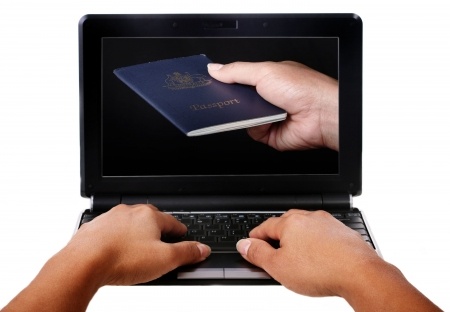When your kids plug into the internet or the cellular networks, they instantly become full-fledged members of a worldwide community. They have instant access to every other person who is also wandering around in that world. And, of course, someone coined a cute name for it: Netizens. (Well, I refuse to refer to them by that stupid name.) But it is worth thinking through the implications for your kid (and all of us really) being a contributing member of this global, extended community. Immediate access, physical distance and the perceived anonymity of the cyber world causes humans no end of trouble. That is doubly, triply, true for adolescents. Kids need to know how to behave in a civilized way, even, and, maybe especially, online. The old fashioned (and sadly rarely discussed) concept of citizenship can provide a framework to talk to your kids about how to be a responsible, contributing member of this cyber society. (The focus will be on the cyber community but the lessons are universal.)
What’s a parent to do?
Unfortunately, most of us haven’t given much thought to what makes a good citizen since middle school Civics lessons. This series of columns will provide information on talking to your kids about being a good cyber citizen (as a way to talk about how to be a decent person in cyber space). It will identify some important components of a code of conduct in the cyber community. There will also be suggestions for how to encourage good citizenship (and punish undesirable cyber behavior).
Talking about cyber citizenship
To be a good cyber citizen, your kid will need to know what that actually means. Citizenship is the rights, privileges and duties conferred on a member of a society. It most often includes both protections (e.g., the Bill of Rights) and duties (e.g., obeying the law, contributing to the community). Cyber citizenship is the rights, privileges and responsibilities required of internet and cellular network users.
Cyber rights. Cyber citizenship is based on the general concept of citizenship but differs in a couple of ways. First, there are no real “rights” you have as a cyber citizen other than the legal protections you already have as an actual citizen. (And, some of those are not available due to the global nature of the cyber world.) Nevertheless, every citizen of the cyber world should have the right to respect, privacy and their own opinion. Your kids should act respectfully toward other people. They should also require others to treat them respectfully. People (in this country) have the right to privacy. While these rights are not absolute in the legal sense, this isn’t a legal treatise. This discussion is about how your kids SHOULD treat others. That means they should keep other people’s private communications private. It also means keeping personal information private. There are very specific implications for this when it comes to privacy settings on online accounts that will be discussed in more detail later. Finally, the United States has a long and legally elaborated protection of free speech. This is the spoken version of a right to your own opinion. (Having a right to your opinion does not mean you are correct. Nor does it this right extend to EXPRESSING your opinion in insulting, defamatory or rude ways.) A free exchange of opinions is a sign of a vibrant democracy. (It can sometimes also be the result of a jerk just spouting off about whatever comes to the front of their mind.) Your teen should be able to tolerate someone expressing an opinion they disagree with. They should be able to express their opinions in a confident and appropriate way.
Cyber privileges. The privileges that your kids have as cyber citizens are actually conferred on them by you. It is a privilege to have access to the internet (since it is not free). It is a privilege to have the technology that allows them access to the internet and cellular networks. It is important to remind them of this, frequently.
Cyber responsibilities. Responsibility is really at the heart of cyber citizenship. To be responsible, your kid will need to be informed about the cyber world. They also need to know about how to remain safe and protect themselves online. Another area of responsibility is to obey the law. This can be less straightforward for kids than you might think. Finally, kids are responsible for being considerate and well-mannered citizens.
Cyber citizenship is probably more accurately characterized as civil behavior. There are certain ways civilized human beings should behave toward others. This is the ideal realm of parental guidance; because we are talking about character, morals and ethics.
The next column will focus on ways to help your kid become more informed of the different parts of the cyber world. This will include their cyber identity, cyber footprint, cyber property and cyber friendships. Future columns will address cyber safety (and vulnerability), legal issues and finally, online civil behavior. Then there will be a discussion of establishing a code of conduct with your kid for their online actions.
originally published on www.brentwoodhomepage.com

